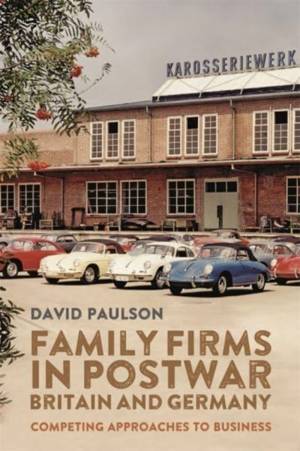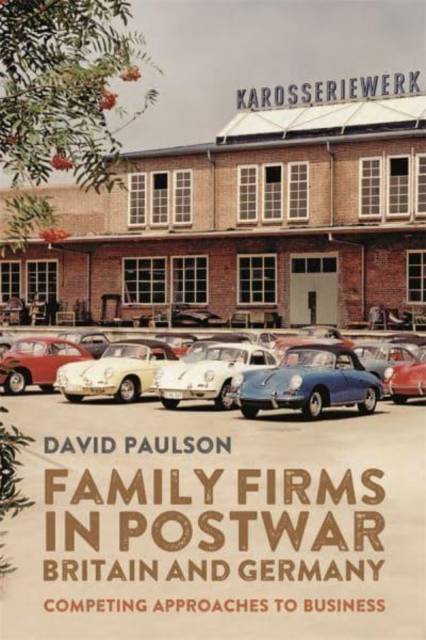
- Retrait gratuit dans votre magasin Club
- 7.000.000 titres dans notre catalogue
- Payer en toute sécurité
- Toujours un magasin près de chez vous
- Retrait gratuit dans votre magasin Club
- 7.000.000 titres dans notre catalogue
- Payer en toute sécurité
- Toujours un magasin près de chez vous
59,95 €
+ 119 points
Description
Examines the culture and conduct of six small and medium-sized enterprises (SMEs) in England and West Germany from 1945 to the late-1970s, drawing on numerous archives in Germany and Britain. This is the first book length study that examines the detailed histories of SMEs in a comparative, transnational manner. Emerging from this study is an evaluation of German and British varieties of capitalism in action, showing that they were not fixed or static, but rather have changed considerably as they evolved over time. The German companies studied formed part of the Mittelstand, the family-owned sector which is unique to German-speaking countries. This book explores whether the principles of a close identification with the surrounding region and a patriarchal culture within a 'family' atmosphere were adopted in practice then, and whether they are still applicable today. Paulson compares the Mittelstand to British SMEs in order to understand how their approach differed from that of their German counterparts. For both countries, the 'ecosystem' which surrounded businesses is examined, paying particular attention to funding and vocational education. The book concludes that the potential for a British Mittelstand existed, but that British companies were often less well managed and had to operate within a less supportive external environment than that which favoured the Mittelstand. Historical lessons learned from the management of these companies still resonate today, and can help us to understand contemporary differences in business performance. This book will therefore be of interest to scholars and students of twentieth-century business and economic history, as well as management studies.
Spécifications
Parties prenantes
- Auteur(s) :
- Editeur:
Contenu
- Nombre de pages :
- 362
- Langue:
- Anglais
- Collection :
- Tome:
- n° 20
Caractéristiques
- EAN:
- 9781783277582
- Date de parution :
- 21-02-23
- Format:
- Livre broché
- Format numérique:
- Trade paperback (VS)
- Dimensions :
- 156 mm x 234 mm
- Poids :
- 508 g







